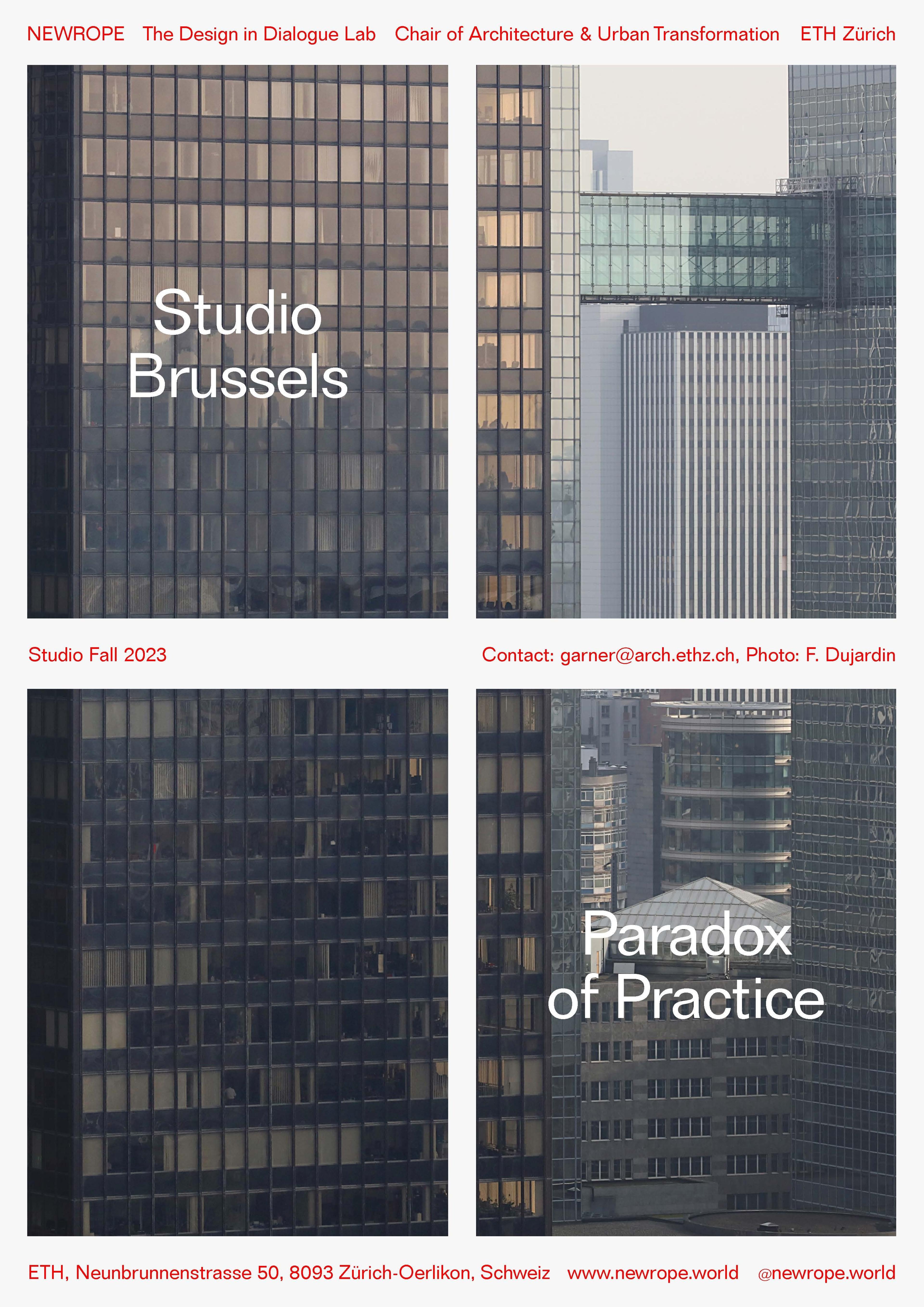Studio Brussels – Paradox of Practice
Studio Brussels – Paradox of Practice
Cities are sites for the extraction of profit and wealth, where capitalist delusions of grandeur materialize in the most delirious ways. Real estate, at times in collaboration with city authorities, continues to project newer and bigger developments on top of existing lived realities. In the process of enacting their fantasies, entire neighborhoods and communities are violently wiped out. Many of these processes remain ongoing, even though the wounds of past events are not yet healed.This is the case for Brussels North, a district deeply affected by trauma. The city’s economic optimism that followed the 1958 World Fair, and the establishment of the first European institutions that same year, prompted the conceptualisation of the Manhattan Plan. This urban, modernist master plan, euphorically oriented towards its American namesake, envisioned the Northern district as a business hub connected to an immense highway network. The plan was never fully realized; only two of the originally eight planned World Trade Center towers were erected, causing, however, the demolition of an entire neighbourhood and the eviction of its inhabitants. Enthusiasm fainted, forcing the city administration itself to enter some of the buildings.
Such aggressive strategies of urban renewal have inevitably forced cities to become places of resistance and emancipatory struggle. Massive protests that followed the Manhattan Plan prevented authorities from pursuing further demolitions of the old city fabric. Today, Brussels North District is being reinvested in once more, with renewed optimism.How to deal with trauma? In this dramatically monofunctional district, investors and planning authorities have recently agreed on a 10% public utility within every new construction and renovation. We will use this as an entry point to question and rethink the notion of the public, as well as its mirror, the counterpublics.
Being densely inhabited environments, cities carry the immanent potential of radical change due to the continuous collective reinterpretation of urban culture. Through carefully listening, observing and collaborating with a variety of local positions, we will gain a deep understanding of the complexities at play. We will become active and intervene as designers while being aware of the paradoxes of practice. Sometimes making something sets unforeseen processes in motion. We will identify underlying risks, such as gentrification, commercialization and displacement, to prevent another chapter of trauma for Brussels North.
Further, we will ask ourselves: How to relate to utopian visions of the past? How to deal with the decaying and failed structures of burgeoning times? Even more so, within an overbuilt world facing ecological collapse?The studio‘s endeavour is threefold: to strengthen the students' literacy/awareness with critical spatial theory, to articulate individual positions and to test alternative architecture practices and doing so by engaging and learning with and from artistic practices. The design studio will be tightly knit with a diverse group of local actors, We will cultivate a reading club, propose interventions in Brussels and Zurich, host a symposium and curate an exhibition.
– Phase 1: Trauma I-IV
– Phase 2: Paradox of Practice
– Phase 3: Curation
– Fieldtrip to Brussels 10-11.10.2023
